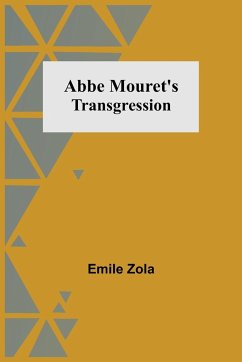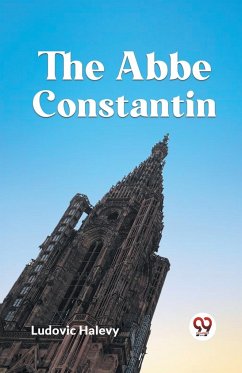Nicht lieferbar

ABBE Mouret's Transgression
Versandkostenfrei!
Nicht lieferbar
Weitere Ausgaben:
Serge Mouret, the younger son of Francois Mouret (see La Conquete de Plassans), was ordained to the priesthood and appointed Cure of Les Artaud, a squalid village in Provence, to whose degenerate inhabitants he ministered with small encouragement. He had inherited the family taint of the Rougon-Macquarts, which in him took the same form as in the case of his mother-a morbid religious enthusiasm bordering on hysteria. Brain fever followed, and bodily recovery left the priest without a mental past. Dr. Pascal Rougon, his uncle, hoping to save his reason, removed him from his accustomed surroundi...
Serge Mouret, the younger son of Francois Mouret (see La Conquete de Plassans), was ordained to the priesthood and appointed Cure of Les Artaud, a squalid village in Provence, to whose degenerate inhabitants he ministered with small encouragement. He had inherited the family taint of the Rougon-Macquarts, which in him took the same form as in the case of his mother-a morbid religious enthusiasm bordering on hysteria. Brain fever followed, and bodily recovery left the priest without a mental past. Dr. Pascal Rougon, his uncle, hoping to save his reason, removed him from his accustomed surroundings and left him at the Paradou, the neglected demesne of a ruined mansion-house near Les Artaud, where he was nursed by Albine, niece of the caretaker. The Abbé fell in love with Albine, and, oblivious of his vows, broke them... (J. G. Patterson)
















